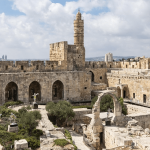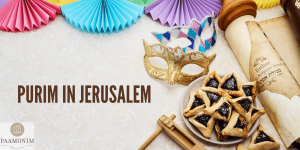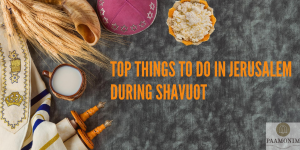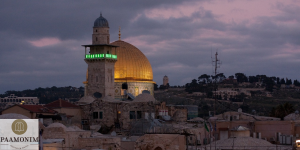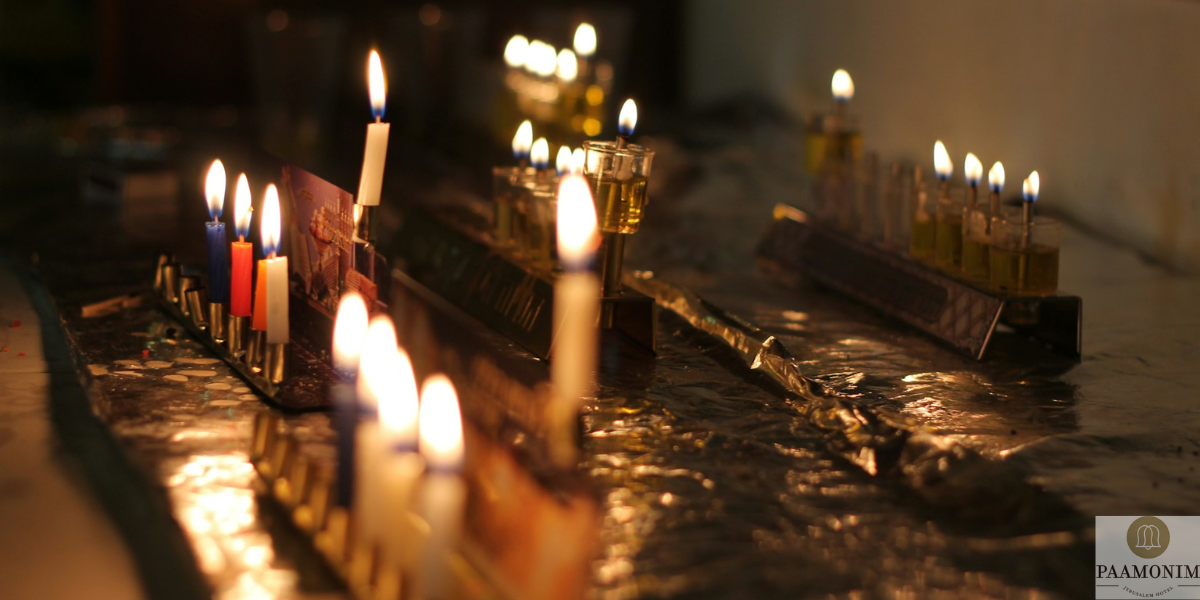
When people think of Jerusalem, they think of old stone streets, golden sunrises and sunsets over the Old City, a living city that is full of life and old prayers and old customs. Yet perhaps there is no better way to experience this distinctive city than on a Jewish Heritage Weekend. With Shabbat, synagogue life, and the rhythm of Jewish life at the forefront, such a weekend is both spiritual in its import and culturally rich and unforgettable. For those who choose to stay at the Paamonim Hotel Jerusalem, the city’s center is beyond your door, the best starting point to explore, behold and participate in the religious activities that have been functioning for thousands of years, instilling the Jewish people with a distinctive way of life that sets it apart from all others.
Why a Jewish Heritage Weekend in Jerusalem Is Unique
A weekend in Jerusalem is a phenomenal experience compared to any other place in the world, and specifically for those interested in Jewish roots. Every street is full of reminiscences about the past, and every corner offers a new discovery of living tradition. While many cities in the world have thriving Jews communities, Jerusalem is the only place where Jewish life, culture, and history are integrated into the very fabric of the city itself.
A Jewish Heritage Weekend provides travelers with an opportunity to discover Jerusalem not only as a compilation of sacred places, but as a living city. Shabbat is not limited to the synagogue or religious home – it is felt on every street, in the closing of the stores, in the silence that pervades neighborhoods, in the celebration that takes place at the Western Wall. It is a weekend when time itself seems to change, and both visitors and locals get a rare opportunity to slow down, reflect, and enjoy the community.
The Meaning of Shabbat: A Sacred Pause
The very heart of a Jewish Heritage Weekend is Shabbat, the Jewish Sabbat. The Shabbat is celebrated from Friday evening until Saturday night, and on Shabbat, Jerusalem can be seen as a place of peace. The experience is as much cultural as it is religious, and even those who are not Jewish can find great inspiration in the rhythm of this sacred time.
Shabbat begins Friday evening, when families gather together and light candles before sunset. The light of these candles symbolizes the transition between the work week and a period of holiness and quiet. In Jerusalem, this ritual is not limited to private homes; the whole city echoes the shift. Public transportation stops, markets close and the streets become quieter as anticipation builds for the evening prayers.
The synagogue service called Kabbalat Shabbat is the welcome of the “Sabbath Bride.” Here, worshippers sing psalms and hymns to passed-down melodies. The atmosphere is both playful and solemn, and visitors are often struck by the sense of unity that fills the synagogue. Afterwards, people gather in their families for festive meals, which start with blessings over wine and challah bread. These meals are often prolonged late into the night with traditional dishes, storytelling, and songs which travel across the balconies and courtyards.
Saturday is its continued sense of calm. Families and friends enjoy leisurely meals, go to services at a synagogue or take tranquil walks through the city. For observant Jews, work and electronics are left behind, and it is a rare time zone for focusing on spiritual life and connection with oneself. The end of Shabbat, with the Havdalah ceremony, is just as moving as the beginning. A braided candle, wine and fragrant spices are part of the ceremony, symbolizing the transition from the holiness of Shabbat back into the rest of the week.
Synagogues in Jerusalem: A Living Tapestry of Faith
No Jewish Heritage Weekend would be complete without exploring Jerusalem’s synagogues. These sacred spaces are more than the site of worship, but they are the windows on the diversity and resilience of Jewish tradition. From great architectural masterpieces to warm neighborhood prayer rooms, each synagogue is a story.
One of the most notable is the great synagogue of Jerusalem, and it is not that far away from the Paamonim Hotel Jerusalem. Known for its soaring architecture and powerful choir, it allows worshippers from around the world. Visitors are often struck by the grandeur and devotion that fill the sanctuary.
The Hurva Synagogue is a sign of Jewish perseverance in the Old City. Having been destroyed several times in its history and rebuilt painfully, it is symbolic of the continuity of Jewish life in Jerusalem. Stepping inside, you have not only the sense of the praying but of the weight of the centuries of history.
For anyone who is looking for a bit of a different experience, the Belz Great Synagogue is a glimpse into Hasidic Judaism. As one of the largest synagogues the world has ever seen, it is as awe-inspiring as it is deeply rooted in tradition. There is something special about this atmosphere; it is full of the customs and the melodies of the Hasidic people.
Apart from these well-known landmarks, Jerusalem is marked with small neighbourhood synagogues where hospitality is often offered to strangers. Prayer rooms provide a space to experience prayer at a more personal level, with a typically intimate setting, and are central to a strong sense of community.
Wherever you go, modest dress and respectful mannerism are a must. Some religious services call for men to wear a head-covering known as a kippah (usually available at the door) and call for women to dress modestly, particularly at Orthodox congregations.
Cultural Etiquette During a Jewish Heritage Weekend
Participating in a Jewish Heritage Weekend is as much a matter of sensitivity and respect as a matter of sightseeing. In order to really grasp the Jerusalem traditions, it is important to understand some local customs.
Photography is another area in which etiquette is important. While the beauty of Shabbat and synagogue life is alluring, taking pictures on Shabbat is viewed as disrespectful. The same goes for inside most synagogues, where the focus should be on worship, not cameras.
Visitors should also be aware of the use of electronics on Shabbat. While you are not expected to refrain from all of them, not using phones, playing music, or driving in religious areas of neighborhoods is very respectful. Greeting others with a warm “Shabbat Shalom” is always appreciated and helps to create an instant feeling of connection.
Perhaps one of the more memorable aspects of Shabbat in Jerusalem is the kind of hospitality that is shown by local families. It’s not out of the ordinary to be invited into private homes for the Shabbat meals. Accepting such an invitation is a privileged glimpse of Jewish culture that creates a lifetime’s worth of memories.
Exploring Jerusalem Before and After Shabbat
While Shabbat itself is a time of rest and thinking, the hours prior to and after it provide some of the liveliest experiences of a Jewish Heritage Weekend.
A few steps away from Paamonim Hotel, on Mahane Yehuda Market, which opens on Friday mornings, there is a burst of life. People rush to purchase things like fresh produce, baked goods and spices for their Shabbat table. The air is fragrant with challah and rugelach and falafel, and the atmosphere is electric. The market on a Friday morning is a day of immersion – colorful, crowded, cheerful.
As evening comes, the crowds gather at the Western Wall. Here, Shabbat is celebrated with unparalleled enthusiasm. Thousands singing, dancing and praying – the sight is powerful, and thousands of people join in the competition. It is also a popular activity among visitors, as many enjoy watching this display of skill and spectacle on a weekly basis.
On Saturday afternoon, the city presents a tranquil beauty. With traffic lights and business doors closed, the streets are perfect for strolling. Walking in the Old City or taking a stroll in Jerusalem’s green spaces enables you to experience the peace that is the Shabbat experience.
The city almost immediately resumes its life when Shabbat ends at night on Saturdays. Cafes are reopened, music erupts into the streets, and the nightlife pulsates once again. The Havdalah services at synagogues and sometimes even outdoors are tremendously beautiful, filling up the air with candlelight and spices.
Paamonim Hotel Jerusalem: The Perfect Place to Stay
Location is everything if you are going on a Jewish Heritage Weekend. The Paamonim Hotel Jerusalem strikes the perfect balance between comfort, ease and proximity to the culture. A walk from Jaffa Road and within walking distance of Mahane Yehuda Market, the Old City and various important synagogues, the hotel places you in the center of Jewish life in Jerusalem.
Hotel rooms are stylish and modern, ensuring that the room, after long days of wandering the ancient streets and feeling the weight of Shabbat rituals, will be a more-than-comforting refuge. What makes Paamonim Hotel Jerusalem unique is not just our location, but also our knowledge of the local culture. Our staff is glad to assist guests with Shabbat times, recommend Torah reading places of worship and even help with getting Shabbat set-up for meals if desired.
By staying here, you not only secure accommodation, but you also get a key to the heart of Jewish Jerusalem.
Jewish Heritage Weekend:
A Jewish Heritage Weekend in Jerusalem is more than a holiday; a heritage weekend is a journey into the soul of the people, the city. From the candles of the Shabbat to the singing of synagogue prayers, from the bustle of Mahane Yehuda to the despair of Saturday afternoon, the experience is at the same time deeply spiritual and intensely cultural.
By choosing to stay at Paamonim Hotel Jerusalem, you will be ensuring that all aspects of this journey are within reach. The hotel’s central location, warm reception and cultural insight provide the ideal home to visit to experience Jewish life in its purest form.
Whether you are seeking faith, history or simply the vibrancy of tradition, a Jewish Heritage Weekend in Jerusalem will leave you with memories long-lasting well after your time in the city.
